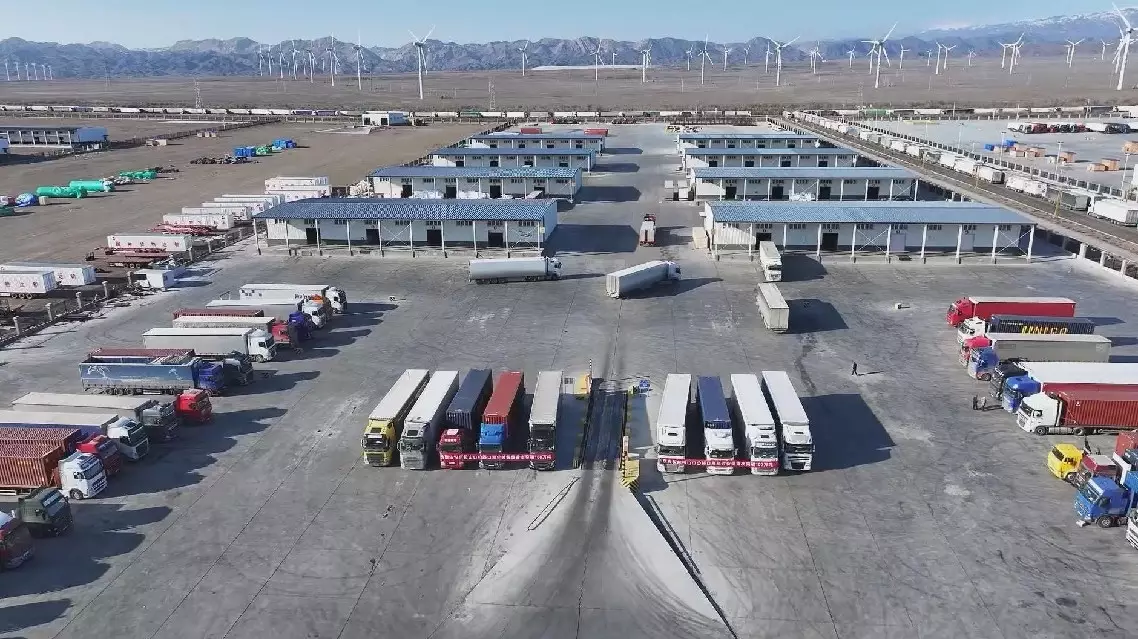Farmers in Aksu, northwest China's Xinjiang Uygur Autonomous Region, are turning a once barren desert into a thriving agricultural hub, harvesting apples and crabs to boost income and improve livelihood.
Known for its abundant sunshine and significant temperature variation between day and night, Aksu provides ideal growing conditions for its famed apples.
These apples are not only large and beautifully colored, but they also feature a distinct "crystal heart"- a result of the region's unique natural advantages.
Beyond natural conditions, Aksu's apple production also benefits from careful management.
The region has adopted an innovative way of inhibiting wind and fixing sand by planting trees to shield apple trees from harsh conditions.
Today, the once barren land is returning the favor.
This year alone, Aksu's orchard industry is expected to generate 19.2 billion yuan (nearly 2.65 billion U.S. dollars) in revenue.
It's not just apples that are thriving in the region.
Along the edge of the Taklamakan Desert, China's largest desert, aquatic products from the foot of the Tianshan Mountains are also gaining popularity.
A species of crab from Huzhou City, east China's Zhejiang Province, is introduced to the region.
Initially, there were doubts about whether crabs could survive in Xinjiang's saline soil.
"Before, we raised fish, but we never even considered crabs. We thought they would be hard to farm, especially since it's a new species, and we weren't sure if they could survive. So, we just took a 'let's give it a try' attitude," said Xu Zhongsu, chairman of a farmers' cooperative in Aksu.
But the area's climate, water sources and saline environment proved to be perfect for the crabs' growth, leading to crabs not only thriving but growing larger than expected.
This success has bolstered local confidence.
As sales begin this year, farmers are seeing tangible returns.
"We didn't expect them to grow so well. Now we're starting sales, which means people can earn money from crab farming. This boosts confidence for next year, and we plan to expand our base, allowing local villagers to increase their income," said Wang Jia, a sales rep of the crabs.

Xinjiang farmers turn desert into thriving farmland, boosting income









